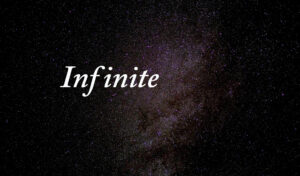There was no high or low for Sri Aurobindo. His vast, mighty intellect could be equally at ease with a person who was far less than him in intelligence. At the same time his love and compassion extended to one and all including the thief, the workers, cook, family, friends, birds and beasts. Generosity at every level and giving to whoever sight help or needed something is another quality that is striking in Sri Aurobindo. Free of hate, even for the British against whom he fought, free of inner violence even though he was not against armed rebellion if need be, completely foreign to anger, devoid of lust of any kind, one to whom sacrifice and austerity as well as simplicity, resolute and determined in will yet plasticity to adapt to changing circumstances, ability to bear the hardest suffering without complaint yet full of wit and humour, cheerful and candid as a child and caring and affectionate, came naturally to Sri Aurobindo as we find in various anecdotes and biographical account of his life, for example, Sri Aurobindo his life unique, Sri Aurobindo in Baroda, Charu Chandra Dutt, Tales of Prison Life, and others. His friends would call him tyagarajan and though awed by his intellect, Sri Aurobindo never made them feel one bit inferior by his presence. He was of course reticent in speaking, not loud but thoroughly gentlemanly in his demeanour and actions. Mainly given to reading and inwardly concentrated, a light eater who was quite detached to his surroundings and food or people’s opinions is the image of Sri Aurobindo that comes across from the accounts. I could go on with references but just quoting two anecdotes from the revolutionary Sudhir Kumar Sarkar who was convicted to the Andamans.
*His Infinite Compassion*
One day I was about to go for target practice, and took a shotgun with me. Nearby in a small hut with mud walls and a thatched roof lived Sri Aurobindo’s maternal uncle. He always kept his doors and windows shut and sat on a thick pile of old newspapers. Through this eccentricity, he persisted in his silence and seclusion, never coming out of his room. I resolved to have a look at him. I gathered information about him from Didi, Sri Aurobindo’s sister, and learnt that he was very much scared of the sound of a gun.
So on this day I crept under his window and fired the gun. A terrible howl came from inside the room as if I had fired right at him. A pitiable groan was heard. I became very perplexed and also anxious. I would truly have been happy to escape, so ashamed did I feel. I saw his mother approach. Then a face pale as a candle with a thin overgrowth of black beard appeared at the window. Before granny could ask anything I blurted out, “I never thought it would turn out like this!” She seemed to grasp the situation and was relieved. She went towards her son with some words of comfort, such as, “Oh, what has happened!”
In no time I saw Sri Aurobindo, his wife and sister coming. I grew thoroughly frightened and mortified at this development. Taking cover of the rooms in a big house, I ran away as fast as I could to the farthest corner of a wrestling ground belonging to another uncle. To him I unburdened the gist of the event. But this uncle, being a wrestler and a daredevil, paid little attention to what I said and started on some topic of his own which had nothing to do with it.
Gradually it became midday and as I failed to appear for lunch, Didi came out in search of me. Standing in that wrestling ground, I tried to explain what happened and exonerate myself of the crime. But the more I persisted, Didi turned the talk to other topics and kept on saying, “It’s getting late, Sejda (Sri Aurobindo) is waiting for you for lunch.”
I entered the house feeling like a thief apprehended. I decided I would admit my mischief at the first opportunity. But I failed to detect any sign of disapproval or concern on anyone’s face. I felt as if my eyes, my face, my whole body was bending low towards the floor in shame. How a boy like me with such an insubordinate and misbehaving nature could be disciplined was perhaps known only to him. I felt as if I were dead, Sri Aurobindo took in my sorry plight with a single glance and said nothing.
In this way I indulged in one mischief after another and received inner blows. This made me reflect: “Such a man, he is really like a god! I will never, never hide anything from him or speak a lie to him. To disturb such a godlike being is the worst of sins!”
His never saying anything, never reproaching me, only looking on as if he neither approved of my wrong-doing nor ignored it, as if he never gave any place to them in his thought, this silence tormented me and filled me with indescribable anguish. I longed above all that he should say something. I even went so far as to speak to him of my weaknesses. He only said: “Human beings are weak. It is not good to make them still more weak by dwelling on their weaknesses. Rather one should think only of that which gives strength to the mind.”
*
‘Sri Aurobindo used to mingle with us unreservedly, eating, sleeping, talking and joking with us! There was no barrier at all. At that time so much liberality appeared a little too much for me. One day I went so far as to protest.
It happened when I found he had written in a letter to his friend Sundari Mohan Das, “My friend Sudhir Kumar is going to see you”. I asked him point blank, “How do I become your friend? You, who are so much above me in learning, age, accomplishment and fame — in fact, in every respect. Rather it is proper that I should venerate you, seek advice from you, be humble to you; instead I am described as your friend and equal. And that too while writing to someone who is much older than me, and higher in status!”
But Sri Aurobindo brushed all this aside and would not let me go before convincing me thoroughly of my misconception. In his faltering Bengali which sounded so sweet in his English-accented tongue, he said, “Because our aims, our hopes and our aspirations are so much the same how can we be any other than friends? The diffidence you feel is due to the tradition of this country. At present it has gone beyond limit and taken an exaggerated form which seems so unnatural.” ‘
Affectionately,
Alok Da



